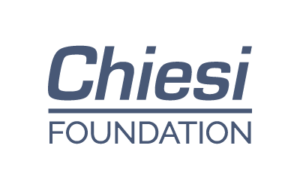The Country
Burkina Faso is a West African country with significant development challenges. Its economy, predominantly based on subsistence agriculture, is heavily influenced by a tropical climate with alternating dry and rainy seasons and poor soil. Despite attempts at economic diversification, the country remains one of the poorest in the world, with a population that depends largely on a fragile agricultural sector that is susceptible to climate change.
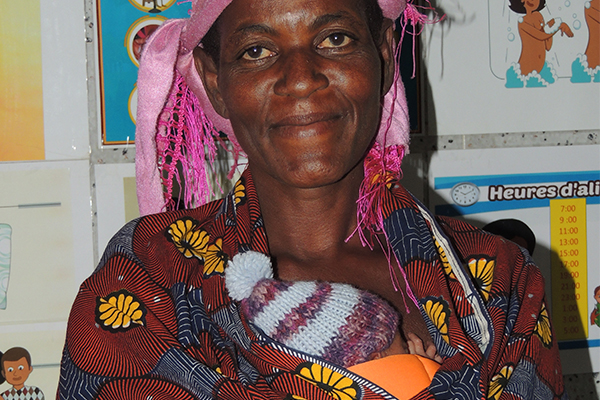
In 2023, the population of Burkina Faso was approximately 23,025,776, with a population growth of 2.3%. The population distribution is predominantly rural, with 74.2% of the population living in rural areas. Life expectancy at birth is approximately 60 years for men and 65 years for women.
Burkina Faso’s political history has been marked by instability and regime changes. In recent decades, the country has adopted a multi-party system, but challenges to democracy and the rule of law persist. Civil society is active, but social and political tensions remain constant, especially in rural areas.
Burkina Faso faces a serious health crisis, exacerbated by a context of insecurity and instability. The health system is fragile, with significant shortages of medical personnel, medicines and infrastructure, especially in rural areas. Infectious diseases such as malaria, tuberculosis and diarrhoeal diseases are endemic. Malnutrition, particularly among children, is a widespread problem, especially in the Sahel regions. In recent years, growing insecurity has led to the closure of many health centres and limited access to care for millions of people.
In 2022, the neonatal mortality rate in Burkina Faso was approximately 25 deaths per 1,000 live births. This data highlights the urgent need to improve neonatal care in the country, where access to quality health services is limited and resources are scarce. The Chiesi Foundation, through the NEST project (Neonatal Essential Survival Technology), is working to address these challenges and improve neonatal survival in Burkina Faso.
(Source: data.who.int)
Burkina Faso in numbers
Burkina Faso in numbers
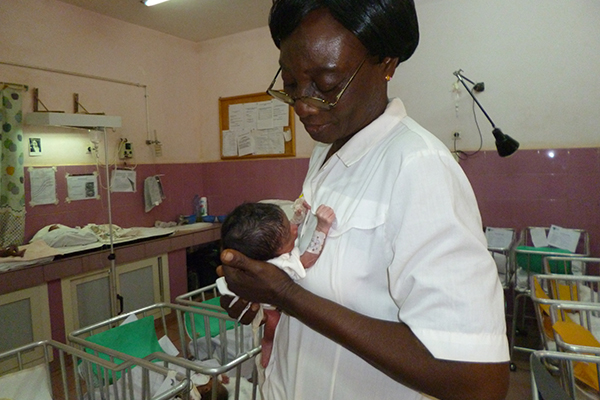
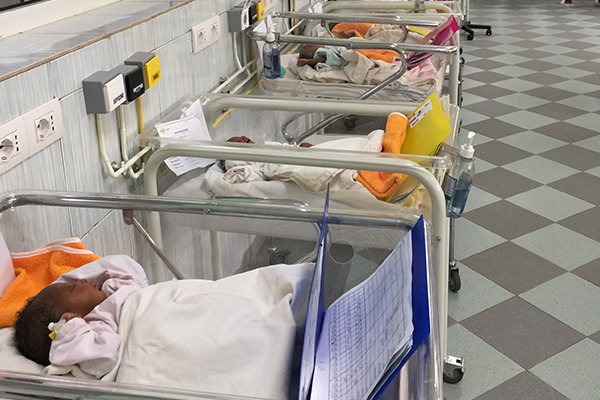
Our intervention
Chiesi Foundation and the Saint Camille Hospital of Ouagadougou
Since 2010, the Chiesi Foundation has established a strong partnership with the Hopital Saint Camille de Ouagadougou (HOSCO) in Burkina Faso, focusing its efforts on improving neonatal care.
Construction and equipment of a new neonatal unit
One of the first goals achieved was the construction of a new neonatal unit within the hospital. Thanks to the funding of the Foundation, new, more adequate spaces were created and equipped with cutting-edge equipment, such as CPAP (Continuous Positive Air Pressure), a non-invasive ventilation system essential for the care of premature babies.
Staff training and implementation of the NEST model
In parallel with the infrastructural aspect, the Chiesi Foundation has invested in the training of healthcare personnel, implementing the NEST model (Neonatal Essential Survival Technology). This model, aimed at improving the survival and growth of newborns, has been shown to be effective in reducing infant mortality, as confirmed by a study published in the prestigious Journal of Maternal-Fetal & Neonatal Medicine.
Creating a Perinatology Network
To further strengthen the neonatal care network in Burkina Faso, Chiesi Foundation has promoted the creation of a perinatology network, involving the main hospitals and birth centers in the region. This network aims to promote the exchange of knowledge, the harmonization of protocols and the improvement of the quality of care.
Facing challenges and looking to the future
Despite the difficulties caused by the COVID-19 health emergency and the political instability of the country, the Chiesi Foundation has continued to support HOSCO and the perinatology network, providing equipment, financing training projects and promoting collaboration between the different actors involved.
The “zero separation” strategy
In 2023, the Chiesi Foundation further strengthened HOSCO’s care capacity by investing in the training of healthcare personnel. Thanks to the collaboration of Dr Paolo Villani and Prof Daniele Trevisanuto, neonatology workers acquired new skills in neonatal resuscitation and in promoting the bond between mother and child through the “zero separation” strategy. This initiative aims to ensure that every newborn receives the best possible care and that mothers are actively involved in their child’s care journey.
Furthermore, during 2023, the Chiesi Foundation continued to support the Réseau de Périnatologie of the Centre Region, facilitating meetings of the network members.
Our intervention
Chiesi Foundation and the Saint Camille Hospital of Ouagadougou
Since 2010, the Chiesi Foundation has established a strong partnership with the Hopital Saint Camille de Ouagadougou (HOSCO) in Burkina Faso, focusing its efforts on improving neonatal care.
Construction and equipment of a new neonatal unit
One of the first goals achieved was the construction of a new neonatal unit within the hospital. Thanks to the funding of the Foundation, new, more adequate spaces were created and equipped with cutting-edge equipment, such as CPAP (Continuous Positive Air Pressure), a non-invasive ventilation system essential for the care of premature babies.


Staff training and implementation of the NEST model
In parallel with the infrastructural aspect, the Chiesi Foundation has invested in the training of healthcare personnel, implementing the NEST model (Neonatal Essential Survival Technology). This model, aimed at improving the survival and growth of newborns, has been shown to be effective in reducing infant mortality, as confirmed by a study published in the prestigious Journal of Maternal-Fetal & Neonatal Medicine.
Creation of a perinatology network
To further strengthen the neonatal care network in Burkina Faso, Chiesi Foundation has promoted the creation of a perinatology network, involving the main hospitals and birth centers in the region. This network aims to promote the exchange of knowledge, the harmonization of protocols and the improvement of the quality of care.
Facing challenges and looking to the future
Despite the difficulties caused by the COVID-19 health emergency and the political instability of the country, the Chiesi Foundation has continued to support HOSCO and the perinatology network, providing equipment, financing training projects and promoting collaboration between the different actors involved.
The “zero separation” strategy
In 2023, the Chiesi Foundation further strengthened HOSCO’s care capacity by investing in the training of healthcare personnel. Thanks to the collaboration of Dr Paolo Villani and Prof Daniele Trevisanuto, neonatology workers acquired new skills in neonatal resuscitation and in promoting the bond between mother and child through the “zero separation” strategy. This initiative aims to ensure that every newborn receives the best possible care and that mothers are actively involved in their child’s care journey.
Furthermore, during 2023, the Chiesi Foundation continued to support the Réseau de Périnatologie of the Centre Region, facilitating meetings of the network members.
Our main activities in Burkina Faso
Enlargement and renewal of the spaces in the neonatology ward.
Preparation of the ward with specialized medical equipment.
Transfer of scientific means and knowledge and staff training.
